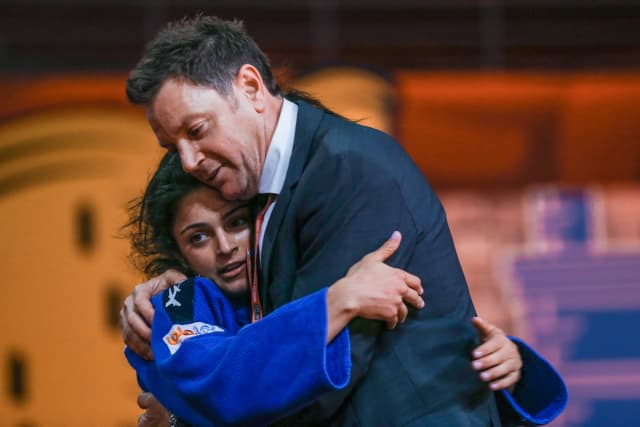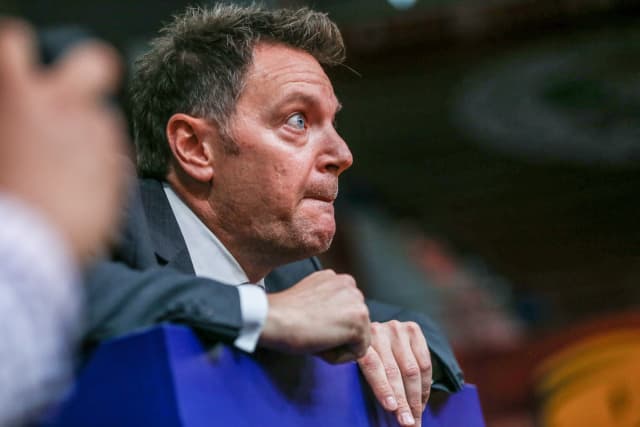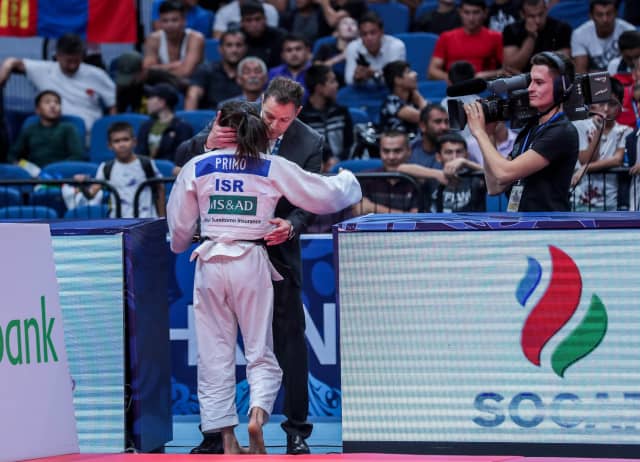-What was the food diet during this time? How did it change?
We work with a nutritionist throughout the year and throughout the Olympic campaign so that we are experienced in customizing the menus for each athlete according to the period, their training, competitions and injuries.
When we had to practice at home, we made sure to build a balanced training and nutrition program so that the athletes were in an ideal position to return to regular training and the world tour of competitions.
- How important is the psychological aspect to keep judoka focus in such difficult period?
When we are forced into a period of uncertainty or distant goals (usually with an injury that requires a long recovery period) I think the right thing is to focus on work day by day, each day creating new challenges.
As such a period is unpleasant it is important to remember that it also creates an opportunity to get better at things that require more time and during the year before the Olympic Games you are forced to abandon them.
So, even in such a complex time, ways can always be found for motivation and improvement
- What did you tell them to keep training and not losing hope?
The main highlights for my athletics were:
1- It's not in our control, it's a global problem - let's make the most of it every day.
2- This is our opportunity to close gaps and open an advantage over our opponents.
3- This is a gift we have to take with two hands to improve things we probably couldn't if the Tokyo Olympics were to be held at the 2020.
In my opinion, these are good enough reasons to keep you motivated
- How about you? What did you tell yourself?
My philosophy is that a coach should be primarily busy in the future - how to get more prepared, how to achieve goals and how to build the success for the athlete, on the other hand, the athlete is better off focusing as much as possible in the present - on the next training and next target.
The current situation made me realize that at this stage, as a coach, it is also better for me to focus on day to day work, not to worry too much in the distant future, to progress day by day and maximum from week to week.
- Are you staying together to train continuously?
For about two months we had to train each one in his own house, also for this period we built a special program in which the top athletes lived in pairs, received appropriate professional equipment and the team coaches remotely following the training program, I was happy last month we went back to training together under the required restrictions, not same like before the corona but in relation to the situation We are happy about what can be done.
- If not together, how do you keep contact?
As I have already answered in the previous question, today in the modern world with the technological you can stay in touch even remotely, of course it was not ideal in the two months we had to stay homes but on the other hand it still allowed us to keep in touch with the players and staff.
- Personally how do you handle your time now? Is it different? Time at home versus time at work?
It might be a little funny, but we got used to working under those conditions, too.
I personally have a hard time with the fact that we stay in the same place, do not meet our friends around the world, do not practice and compete and wherever there is uncertainty about the future.
On the other hand, I'm sure we will get out of the situation, humanity has proven itself in much more complex situations too - so I'm optimistic.
- What is your personal feeling/thought about the global situation and how do you see the future of judo looking?
It's hard for me to bet how long it will take, but I'm sure it will intensify, the crisis will pass and the routine we were used to will return.
When we get back to normal, I'm sure everyone will be incredibly motivated so that maybe we bring special things come out of it.
- Have you modified the specific judo techniques used in training for the team at this time?
The situation has given us the opportunity to improve many things due to the fact that we have been given extra time to prepare.
Some of our energy is spent on improving techniques that require extended training time and under conditions where there is no pressure to compete.
We try to make the most of it.
- What training equipment do you like judoka to use when training alone/in isolation? (Such as Uchi-Komi bands, kettlebells, rowing machine, Bulgarian bag, wobble board, Swiss ball or many others)
Due to the fact that this is a long isolation, it is important to have the opportunity to diversify and in fact everything you mentioned can provide the opportunity to diversify in training and keep you highly motivated for training.
It is important to find the way to challenge athletes with equipment, and in varied training programs.
- Do you think there are some positives to take from this challenging global situation? Which positives apply to you, your life or your work?
I think this time teaches us how important it is to enjoy the little things that Earth and humanity give us, how much we need to appreciate what we have, how important it is for us to be close and to interact with one another.
I'm sure after we will cross that crisis it will make us all better and more thoughtful people.
- Which judoka really impresses you at the moment and why?
I am very happy with the way all of our top athletes have dealt with the crisis, all of them have shown responsibility and commitment and have found the way to continue working for our dreams.
I'm proud of them all.
- If you found Aladdins lamp and were granted 3 wishes, what would you wish for?
1- that humanity will soon overcome this crisis.
2- that this crisis will make us all better people who know how to appreciate what life gives us.
3- that we can go back to routine and enjoy what we do.



